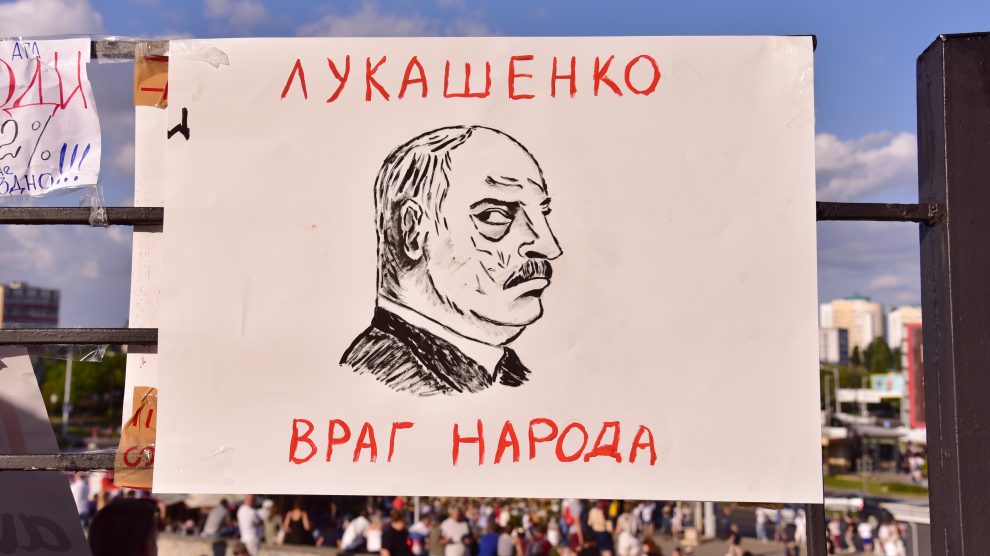Our weekly digest of articles about emerging Europe published elsewhere this week, all of which caught our eye and all of which are well worth your time. Listing them here, however, does not necessarily mean that we agree with every word, nor do they necessarily reflect Emerging Europe’s editorial policy.
—
Alexander Lukashenko clings to power despite protesters’ demands
Despite reports of his imminent ouster, Alexander Lukashenko clings to power in Belarus in the face of ongoing popular demonstrations and in defiance of opposition leaders who say their movement won’t quit until the man known as “Europe’s last dictator” is driven from office.
—
For Europe, losing Britain is bad. Keeping Hungary and Poland could be worse
The populists of Budapest and Warsaw are blackmailing the EU over the rule of law. They cannot be allowed to succeed, writes Timothy Garton-Ash: “If their shameless blackmail succeeds, the populist, xenophobic, nationalist ruling parties in Hungary and Poland will be able to go on doing pretty much what they please, being paid for it generously and, for good measure, biting the German and Dutch hands that feed them.”
—
The Syrian mercenaries used as ‘cannon fodder’ in Nagorno-Karabakh
Turkey and Azerbaijan deny that Syrian mercenaries were used in the recent offensive in Nagorno-Karabakh but four Syrians have told the BBC that after enlisting for sentry duties in Azerbaijan, they were unexpectedly thrown into battle on the front line.
—
Uzbekistan: The red pilgrimage to Mecca
At the height of Stalin’s power, he let a handful of Soviet Muslims visit Mecca. Why?
—
Are Poland’s football ultras really supporting the Women’s Strike?
Did Poland’s notorious far-right football fans find solidarity with a popular protest stemming from the liberal left? Not quite.
The visual whitening of Estonians
Anthropological studies conducted during the Russian empire categorised Estonians as Asiatic. But with the rise of nationalism, colonialism and eugenics, Estonians came to be classified – and to self-classify – as Nordic and European. Photography and painting provide a record of this visual whitening.
—
Turkmenistan: The drugs don’t work
Digital import substitution, currency restrictions, and a cemetery looted for scrap. It’s all happening in Turkmenistan.
—
Survivors of child marriage in Georgia share their stories
Though Georgian legislation prohibits the official registration of a marriage of persons under the age of 18, girls are still being married as children. These marriages instead begin with cohabitation, which ultimately constitutes an unregistered union of individuals.
—
The EU must leverage closer trade ties with Uzbekistan to ensure progress on human rights
Since coming to power four years ago, Uzbekistan’s president, Shavkat Mirziyoyev has been eager to improve relations with the EU. Under the long-serving authoritarian former president Islam Karimov, Uzbekistan was an international pariah – criticised for its atrocious rights record and kept out of international bodies. Through savvy public relations campaigns and some nominal changes, Mirziyoyev has been at pains to shift that perception. If he succeeds, his prize will come in the next couple of months in the form of specialised European trade preferences that could bring in millions of euros.
—
HRW urges Kyrgyzstan to lift barriers to education for disabled children
Human Rights Watch (HRW) says thousands of Kyrgyz children with disabilities are “segregated” in the country’s residential institutions, where the New-York-based group says they can experience “neglect, inappropriate medical treatment, and discrimination.”
—
Six of the best new train journeys in Europe for 2021
Rail operators are promising exciting new routes for the year ahead, with timetables starting this month. The Guardian has picked some of the highlights, and emerging Europe features heavily in its selection.
—
Unlike many news and information platforms, Emerging Europe is free to read, and always will be. There is no paywall here. We are independent, not affiliated with nor representing any political party or business organisation. We want the very best for emerging Europe, nothing more, nothing less. Your support will help us continue to spread the word about this amazing region.
You can contribute here. Thank you.








Add Comment